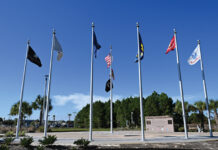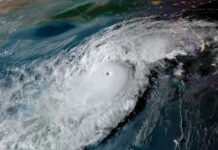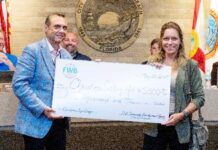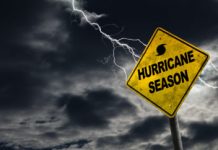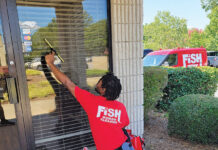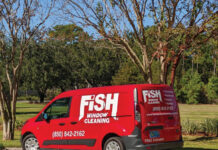By Joe Capers, Insurance Zone
Every time a storm threatens our state, we are reminded of how many homeowners and business owners either do not carry flood and wind insurance at all, or have inadequate limits to cover their loss. Unfortunately, the 2022 Atlantic hurricane season runs to Nov. 30.
When Hurricane Ian hit our state, the property insurance market was already in peril. The market was the most volatile in the U.S. well before Hurricane Ian formed, and will most likely become even more unstable in the wake of the storm. The market has been strained under billion-dollar losses, insolvencies and skyrocketing premiums. The massive storm barreled into southwest Florida, delivering catastrophic winds, rain and flooding. The majority of the estimated losses in Florida come from wind damage, estimated between $22 billion and $32 billion, while insured storm surge losses in the state are expected to be an additional $6 billion to $15 billion.
The increasing unpredictability of hurricane threats underscores the need for property owners – especially those close to water – to raise their standard of preparation. The most significant risks for these homeowners are wind and water. Windows are particularly vulnerable points during a hurricane, but any exterior points – including shingles, gutters, and railings – are at risk from wind. Homes, in general, should have window protection in advance. Owners should either board up the windows or install hurricane shutters. This is one of the more important decisions individuals make.
Without adequate reinforcement, windows can be a source of indoor damage during a storm. A home’s occupants could also be injured near windows when a hurricane strikes. Similarly, doors could become a weak point, so these entryways should also be secured
Although most standard homeowners and business insurance policies can include wind coverage, they do not cover flooding. So it is important to have protection from flooding associated with tropical storms, hurricanes, heavy rains, broken levees, outdated or clogged drainage systems, rapid accumulation of rainfall and other conditions that impact our area. Almost everyone in a participating community of the National Flood Insurance Program (NFIP) can buy flood insurance. Recently, Florida has become the leader in the country in encouraging private markets to respond to our needs with competitive alternatives, but the prevailing market condition will slow down this development.
A flood is defined by FEMA as a general and temporary condition in which two or more properties of normally dry land are inundated by water. Just because you haven’t experienced a flood in the past does not mean you won’t in the future. Flood risks are based partly on history, but also on rainfall, river-flow and tidal-surge data, topography, fold-control measures and changes due to building and development.
The NFIP’s Dwelling Form offers coverage up to a maximum of $250,000 for building property and up to $100,000 for contents and the Commercial Form provides up to a maximum of $500,000 for building and/or contents. Both should be purchased as well as excess flood for limits up to the replacement cost of the dwelling and personal property over the basic limits. Recent storms and predictions of a future with bigger and stronger storms highlight more than ever the importance of flood insurance.
You can buy flood insurance through the NFIP no matter where you live if your community participates, except in Coastal Barrier Resources System (CBRS) areas. For properties in these areas, the private market is available.
We recommend you call an experienced insurance agency with access to the NFIP as well as private markets to help evaluate your flood exposures.
Insurance Zone, founded by Joe and Lea Capers, is a full-service commercial and personal lines insurance agency serving Destin, Miramar Beach, Santa Rosa Beach (30A) and Inlet Beach. Visit its Video Library on ins-zone.com and watch the informative video on “Flood Insurance,” or call (850) 424-6979.












